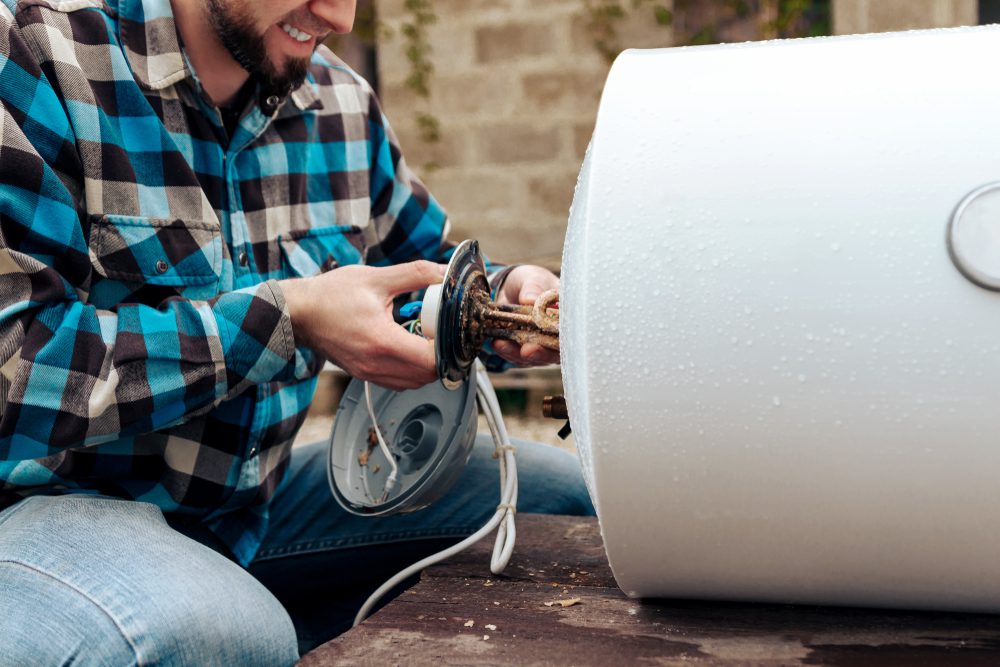Responding to the Everyday Heater Urgent Problems
Responding to the Everyday Heater Urgent Problems
Blog Article
They are making a few good pointers relating to Warning Signs You Need Water Heater Repairs overall in this content down the page.

A water heater is among one of the most vital fundamental devices that can be found in a home. With water heaters, you do not require to go through the tension of heating water by hand every time there is a need to take a bath, do the laundry, or the dishes. There is constantly an opportunity that your water heating unit would act up as with the majority of mechanical gadgets.
It is very important to keep in mind any type of little breakdown as well as tackle it quickly prior to things leave hand. The majority of times, your water heater begins to malfunction when there is an accumulation of debris as a result of continual use. As a precaution, routine flushing of your water heater is recommended to prevent debris build-up as well as prevent functional failing.
Usual water heater emergencies and how to manage them
Leaking water heater tank.
In this circumstance, you need to transform off your water heater, permit it to cool down, and very carefully look for the resource of the problem. At times, all you need to do is to tighten up a couple of screws or pipeline connections in cases of minor leakages. If this does not function and the leak persists, you may need to utilize the solutions of a professional for an appropriate replacement.
Varying water temperature.
Your water heating unit can start producing water of various temperature levels typically ice hot or chilly hot. There may be a requirement to replace either the home heating or the thermostat device of your water heating unit.
Too little hot water
It might be that the water heating unit can't sustain the hot water demand for your home. You might upgrade your water heating system to one with a bigger capacity.
Blemished or smelly water
When this happens, you need to understand if the concern is from the water or the tank resource. If there is no amusing smell when you run chilly water, after that you are specific that it is your water heater that is malfunctioning. The stinky water can be triggered by corrosion or the build-up of bacteria or debris in the water heater container.
Final thought
Some home owners overlook little caution and minor faults in their water heater device. This only leads to more damage as well as a possible total breakdown of your home appliance. You must take care of your water heater mistakes as soon as they come up to stay clear of more costs and unneeded emergency problems.
With water heaters, you do not require to go via the tension of home heating water by hand every time there is a requirement to take a bathroom, do the washing, or the dishes. Your water heater could start producing water of various temperatures generally ice hot or cool warm. It might be that the water heating system can not sustain the warm water demand for your apartment. If there is no funny smell when you run cool water, then you are certain that it is your water heating system that is faulty. The stinky water can be triggered by rust or the accumulation of microorganisms or debris in the water heater container.
Common Water Heater Issues and What You Should Do
What Type of Water Heater Do You Have?
Before we begin it’s first important that you identify the type of water heater you have on your property. There are two main types of water heaters out there: conventional and high efficiency.
Both of these types of products typically use either gas or electricity to heat power. There are also solar water heaters that use a thermal collector on the roof or yard to heat the water.
While these models are not as common, they can cut heating costs in half. In this article, we will focus on conventional and high efficiency.
How Do My Electric and Gas Water Heater Work?
Though they look similar, electric and gas water heaters work very differently. It’s important to know their basic function because often problems can be specific to the heating source.
In the electric model, a thermostat on the side of the machine detects the temperature of the water in the tank. When the temperature needs to rise electricity flows to a heating element suspended in the water.
Gas models also use a thermostat device — typically with a mercury sensor at the tip and an additional sensor called a thermocouple. The thermocouple detects whether the pilot light is on and controls the flow of gas.
When the thermostat drops below the appropriate level gas is released which becomes ignited by the pilot light. The flame heats the bottom of the water tank which causes hot water to rise and cold water to drop.
This natural circulation continues until the water reaches the desired temperature. Then, the thermostat triggers the gas control valve to shut off the flow of gas.
What Are the Most Common Issues and How Do You Fix Them?
https://happyhiller.com/blog/common-water-heater-issues-and-what-you-should-do/

As a fervent reader about Is Your Water Heater Leaking?, I figured sharing that excerpt was worth the trouble. Please take a moment to share this blog if you appreciated it. Thanks a lot for taking the time to read it.
We're ready, dial now! Report this page